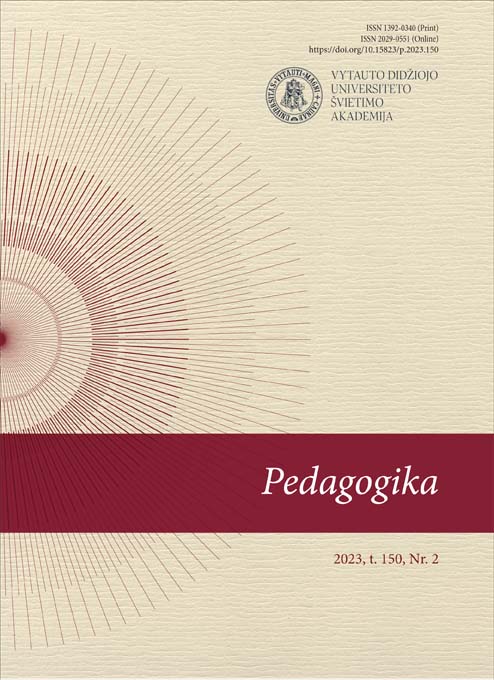Socialinė pedagoginė pagalba jaunesniojo mokyklinio amžiaus vaikams, patyrusiems tėvų skyrybas: socialinių pedagogų požiūris
Social Pedagogical Support for Younger School-Age Children Who Have Experienced Parental Divorce: Insights From Social Pedagogues
Author(s): Rasa Braslauskienė, Gitana Tolutienė, Reda JacynėSubject(s): Social Sciences, Education, School education, Pedagogy
Published by: Vytauto Didžiojo Universitetas
Keywords: Divorce; Younger school age child; Social pedagogical assistance;
Summary/Abstract: The article presents the point of view of social pedagogues about the possibilities of social pedagogical assistance for children of younger school age who have experienced parental divorce, and provides insights into the development of assistance opportunities. A qualitative study (semistructured interview) was conducted with the participation of social pedagogues who work in a general education school and have experience working with children of younger school age who have experienced parental divorce. The content analysis of the research data highlighted the following essential findings: based on the point of view of social pedagogues, the following options for social pedagogical assistance are distinguished: individual counseling of children, extracurricular clubs, organized group activities, child monitoring, games, cooperation with other specialists, psychologist consultations, creation of a safe environment. To enhance the quality of social pedagogical assistance for children coping with parental divorce, social pedagogues emphasize the importance of collaborating with the child’s family, fostering positive relationships with the child, incorporating educational sessions during class meetings, closely monitoring the child’s well-being, educating parents, and ensuring a sufficient number of specialist positions. Instead of social pedagogues, in order to provide better quality social pedagogical assistance to children who have experienced parental divorce, offer to cooperate with the child’s family, to create a positive relationship with the child, to educate children during class meetings, to monitor children’s condition, to educate parents, to ensure a sufficient number of specialist positions.
Journal: Pedagogika
- Issue Year: 150/2023
- Issue No: 2
- Page Range: 212-232
- Page Count: 21
- Language: Lithuanian

